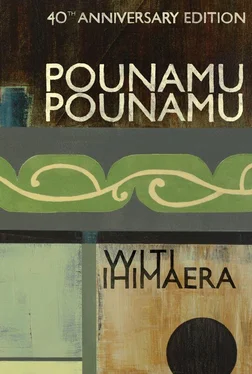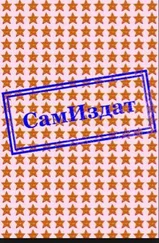Like everybody else, I called it ‘The Museum’. In a way, that’s what it was too, and as I followed Nani Tama, I began to look around for the ornaments and pictures with which I’d been so familiar as a child.
In the kitchen, the old newspapers which served as wallpaper were still there, now yellowing and ripped in places by the procession of mokopunas who’d come to stay from time to time. And there, to one side of the safe, was the old newspaper spread which I’d always found fascinating: a report with fading pictures of men and antiquated vehicles on the Western front during the Great War. Above the sideboard, a tarnished silver ornament that my Nani Miro had won when she’d been a young girl, in a roller skating competition of all things!
‘Oh, you should have seen me, mokopuna,’ she used to say when I went to visit her. ‘I could do a lot of tricks on those skates … and then I met your Nani Tama and he made me have one kid after the other and —’ she would sigh ‘— now the only sport I’m any good at is poker.’
We walked along the short hallway, Nani Tama and I, and he opened the door to the sitting room. The same sensation crept softly over me as I used to feel as a child whenever I saw that room.
This room was the whanau; the whanau was this room. If ever you wanted to know the whanau’s accomplishments, here they were all on show. Here were all the sports trophies, shields, photographs of the old people who’d died long ago, whakapapa or genealogy sheets, carved feather boxes, panels, figurines, feather cloaks, piupius — all spilling a riot of colour and shadow throughout the sunlit room. In this room, surrounded by the past and ancestral memories, Nani Miro had presided over meetings with other elders discussing Treaty matters, the politics of the times and the return of the land.
And, on more informal occasions, right in the middle was the big round table where the kuias used to sit with Nani, playing cards. Looking at it, so lonely now, I could almost hear Nani Miro squabbling with Mrs Heta, to see Mrs Heta’s one googly eye reaching right across the table to sneak a look at Nani’s cards.
‘Keep your eyes to yourself, Maka tiko bum! You can cheat all right!’
‘You the cheat, Miro Mananui! You the cheat! I saw you sneaking that ace from the bottom of the pack!’
And crammed in one corner, was the old piano that Nani Miro used to like me to play. Whenever some of her younger mokopunas wandered over to it, she would yell: ‘You fellas keep your hands off! Only two people are allowed to touch that piano! Me and him!’ she’d said, pointing to me. At the time, I’d felt proud that Nani thought me somehow special. But later, my cousins gave me a hiding and said:
‘Anyway, who wants to play on that stink piano!’
After that, I didn’t like it when Nani Miro used to refer to me when talking about the piano.
I wandered over to it, stepping between the piles of piupius and old clothes.
‘It’s still open,’ Nani Tama said.
I caressed the keys softly. They were all yellow except for one which had had the ivory covering prised off it. I grinned, remembering that my cousin Hirone had done that. He’d seen a film about ivory hunters, gotten it into his head that the keys of a piano were valuable too, and sneaked in to remove one of them. Nani Miro had been real mad when she found out.
My fingers moved across the keys, and began playing a tune. From somewhere far away, I heard an old voice softly singing:
Me he manurere, aue,
Kua rere tito, moenga …
The voice drifted away as I took my hands off the piano and I smiled at my Nani Tama. He nodded wisely. Then we heard a truck draw up outside, and a voice yelling out: ‘Tama! Hey, Tama Mananui!’
Nani Tama went out to see who it was, and I was left alone, to wander in the room.
When I’d been a child and bored with watching the old women playing their card games, I used to like wandering through that room, looking at the old photographs and fingering the carvings and the soft sheen of the feather cloaks. I did the same thing now, alone, a year after my Nani Miro had gone away from me.
This photograph: the Waituhi Men’s Hockey Team, 1938, and Nani Tama young and tall, holding the winner’s shield.
In the glass case on the other side of the room, there was the shield itself, darkly varnished, with rows of shining silver inlaid squares where the names of the winning teams throughout the years were inscribed.
Another sports photograph, and another, and another.
Scattered throughout the room, silver sports trophies, big and small, all shapes and sizes, cups and shields, gleamed in the light.
A big oval photograph, coloured by an artist long ago, of a young woman with the moko tattooed on her chin: that had been my Nani Miro’s grandmother and my great-great-grandmother. A handsome woman, wearing a cloak proudly over her shoulders.
Above the fireplace, the cloak itself was draped, still softly glowing with rippling bird feathers. I reached up to touch it, and it was warm and silky to touch. Then my fingers strayed over a small carved figure, following the curves and spiral whorls and feeling the rough edges left by the carver.
Next to the cloak was a piupiu, spread wide across the wall. It swished and crackled and fell coolly around my arms like a waterfall. Beside it, hung two long pois, my Nani Miro’s pois, which she used in action song competitions at Takitimu Hall.
In one corner, were the bodice tops, piupius and peruperu spears used by the men in the haka. And I remembered that they would soon be used again — for I had come home for the Maori Hockey tournament and there would be action song competitions during the night.
And on an old table, a photograph of Nani Miro herself, her face creased in a smile and her one black tooth showing. She used to say that if it wasn’t for that porangi tooth, she’d have been a film star.
I picked the photograph up and grinned back. Then my eyes fell upon a large book, opened, and showing entries written in different inks by different hands. This held the whakapapa of the whanau, the genealogy of the people of the village. I looked over those names, so familiar, because although these people were dead, they were all my family too. And I saw where Nani Tama had made the last entry: Miro Heremaia Mananui.
Then Nani Tama returned.
‘That was Joe Baker,’ he told me. ‘He brought your Nani some kanga kopiro. You like rotten maize, mokopuna? You want a feed?’
I shook my head.
‘No, Nani,’ I said. ‘I have to go soon.’
He nodded his head. Then his eyes grew serious. He motioned me to a cupboard and brought out a wakahuia, a small carved box.
‘You remember this?’ he asked.
I nodded. I opened the box. Inside was the greenstone. No one knew how old it was, only that it was very old. When I’d been a young boy, I’d discovered it there and asked Nani Miro if I could have it. But she had growled at me.
‘I know you,’ she’d said. ‘You’d only play war games with it! No mokopuna, not now.’
It was a big piece of greenstone, not the valuable dark green kind, but a smoky green like an opal. But I used to like to hold it to the sun and look into it, and feel the soft luminous glow flooding around me. And I used to whisper to myself, ‘Pounamu … pounamu … pounamu …’, and almost hear the emerald water rushing over the clay from where the greenstone had come.
‘Yes, I remember,’ I said to Nani Tama, ‘I remember.’
That’s when Nani Tama looked around the room and asked, ‘Shall I give it to him now, Miro?’
For a moment there was silence. Then Nani Tama nodded, turned to me and firmly put the greenstone in my hands.
Читать дальше












